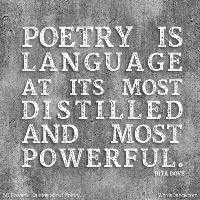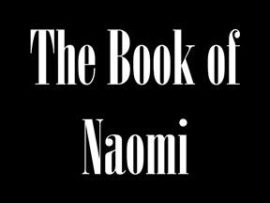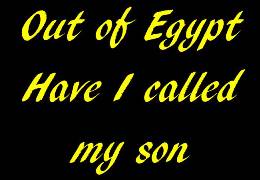When reading biblical poetry, one must learn to connect with the poem on more than one level. While it is important to carefully define the Hebrew words being employed in any passage, and to track a poem’s use of parallelism and word pairs, and to follow the overall...
Continue reading
June 28, 2017 Andrew Sargent
Biblical Studies, Biblical Theology, Inductive Study Methods, Old Testament Studies
No Comment
Poetry, by definition, is usually regarded as distinct from another category of writing called Prose. To express it simply, Prose is normal writing. It reflects the speech patterns of typical daily conversation, even if a bit more planned and carefully refined. Poetry then is an alternate way of...
Continue reading
June 19, 2017 Andrew Sargent
Biblical Language Issues, Biblical Studies, Inductive Study Methods, Old Testament Studies
Ruth is one of my favorite books, but I have a serious problem with it. The problem is the name. Now, I know that the Jews also called the book “Ruth” and that I should respect that, but honestly I just can’t bring myself to do it. The...
Continue reading
June 9, 2017 Andrew Sargent
Biblical Theology, Old Testament Studies
No Comment
So in Chapter 2 verse 15, Matthew deems Joseph’s return to Israel after a quick escape from Herod by hiding out in Egypt for a time to be a fulfillment of Hosea 11:1, which says, “Out of Egypt have I called my son.” Many have suggested that such...
Continue reading
May 15, 2017 Andrew Sargent
101 Most Misunderstood Verses, New Testament Studies, NT's Use of the OT, Old Testament Studies
No Comment
Today I want to consider the 6th of seven paths of investigation that a person should take in an attempt to understand a New Testament author’s USE of an Old Testament text. Do texts like Matthew 2:15—in which an historical comment in Hosea 11:1 is said to “be...
Continue reading
May 3, 2017 Andrew Sargent
101 Most Misunderstood Verses, New Testament Studies, NT's Use of the OT, Old Testament Studies
No Comment
Today I want to consider the 5th of seven paths of investigation that a person should take in an attempt to understand a New Testament author’s USE of an Old Testament text. Some falsely imagine that texts like Matthew 2:15—in which an historical comment in Hosea 11:1 is...
Continue reading
May 1, 2017 Andrew Sargent
101 Most Misunderstood Verses, Bible Backgrounds, HAGALAH, New Testament Studies, NT's Use of the OT, Old Testament Studies
No Comment
In this edited sermon, I consider Jeremiah 45 in historical, grammatical and literary context. Baruch has been called away from a life of promise to play second fiddle to a hated prophet… to share in Jeremiah’s suffering and rejection. He is less than excited by the call and...
Continue reading
April 26, 2017 Andrew Sargent
Bible Backgrounds, HAGALAH, Inductive Study Methods, Old Testament Studies
No Comment
This is a heavily edited message about the power of poetry as a vehicle for the inspired word of God. Poetry is not a mere vessel for the message of poetic sermons, but is part of the message, holding secrets to meaning, and the power of emotive connection....
Continue reading
April 24, 2017 Andrew Sargent
HAGALAH, Inductive Study Methods, Old Testament Studies
No Comment
If a person sets the various stories of Hezekiah into chronological order a fascinating pattern emerges. Hezekiah is a man of great faith during a time great crisis. He is all the more remarkable considering his father, who was a true reprobate who sold out Judah to...
Continue reading
April 21, 2017 Andrew Sargent
Bible Backgrounds, HAGALAH, Old Testament Studies
No Comment
In this edited sermon, I address the common misinterpretation of the line in Isaiah 29:18 Where there is no vision, the people perish. First people fail to quote the whole proverb. It goes, “Where there is no vision, the people perish: but he that keepeth the law, happy is...
Continue reading
April 17, 2017 Andrew Sargent
101 Most Misunderstood Verses, Biblical Language Issues, Biblical Studies, Biblical Theology, HAGALAH, Inductive Study Methods, Old Testament Studies
No Comment
In this series I am unpacking seven paths of investigation that a person should take in his or her attempt to understand a New Testament author’s USE of an Old Testament passage. Many imagine that texts like Matthew 2:15—in which an historical comment in Hosea 11:1 is used...
Continue reading
March 31, 2017 Andrew Sargent
New Testament Studies, NT's Use of the OT, Old Testament Studies
No Comment
We’ve been considering the claim that Matthew’s appeal to YHWH’s historical deliverance of Israel from Egypt in Hosea 11:1 is proof positive that the NT writers cared little to nothing for the original context of the passages they quoted. They had, it is claimed, a Jesus hermeneutical lens...
Continue reading
March 20, 2017 Andrew Sargent
Biblical Language Issues, New Testament Studies, NT's Use of the OT, Old Testament Studies
No Comment
In this series we are laying the ground work for analyzing the common suggestion that Matthew 2:15 proves that the New Testament writers don’t care about the original context of the Old Testament texts that they interpret …and, thus, neither should we. I insist that they did care...
Continue reading
March 15, 2017 Andrew Sargent
Biblical Studies, New Testament Studies, NT's Use of the OT, Old Testament Studies
No Comment
In part 1 of this series I introduced the common accusation that Matthew 2:15 proves that the New Testament writers don’t care about context. Matthew takes a text that was clearly intended to make an historical statement about God’s deliverance of Israel from Egypt and declares it to...
Continue reading
March 13, 2017 Andrew Sargent
Biblical Studies, New Testament Studies, NT's Use of the OT, Old Testament Studies
No Comment
We have invited Melodie Sargent, a student at Northpoint Bible college, back again to deliver another blog post. This time her attention is turned the importance of rhetorical structure in the first prophetic sermon of Amos. Enjoy. Amos 1:3–2:16 Background During the righteous reign of King Uzziah (Amos...
Continue reading
March 3, 2017 Andrew Sargent
HAGALAH, Old Testament Studies
No Comment
This is a heavily edited New Years Day message that I delivered at Darlington Congregational Church in Pawtucket Rhode Island a few years ago. Being heavily edited, it is not only short, but also gets to the point without a lot of hoopla. I consider the importance that...
Continue reading
February 24, 2017 Andrew Sargent
Bible Backgrounds, Biblical Theology, New Testament Studies, NT's Use of the OT, Old Testament Studies
Okay, so we’ve established that reading the books of the writing prophets is hard. They wrote in poetry; they make casual reference to cultural practices of which the modern reader is completely ignorant; they preach to their own people about events that are happening around them, without feeling...
Continue reading
February 1, 2017 Andrew Sargent
Biblical Studies, Inductive Study Methods, Old Testament Studies
No Comment
Okay, so the Prophetic books in Scripture are both awesome and awfully difficult to understand. They have a pesky habit of preaching under divine inspiration about events that they never explain… they didn’t need to; their original audience already knew all about it. Another difficulty that plagues their...
Continue reading
January 30, 2017 Andrew Sargent
Bible Backgrounds, Biblical Studies, Inductive Study Methods, Old Testament Studies
No Comment
In my last post, I introduced the background to the book of Isaiah in vague pictures designed to capture the essence of the political, social & religious dynamic at work in his world. This portrait is an essential part of understanding the many prophetic sermons recorded in the...
Continue reading
January 25, 2017 Andrew Sargent
Bible Backgrounds, Biblical Studies, HAGALAH, Old Testament Studies
No Comment
Let’s be honest. Reading “The Prophets” is hard. Well, reading them isn’t hard, at least not in translation, but understanding them is. I’m talking about books like, Isaiah, Jeremiah, Ezekiel and The Book of the Twelve… what we like to call “the minor prophets.” These books are victims...
Continue reading
January 23, 2017 Andrew Sargent
Bible Backgrounds, Biblical Studies, Old Testament Studies
No Comment















